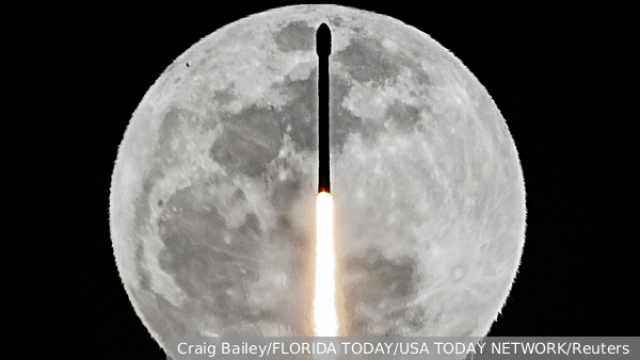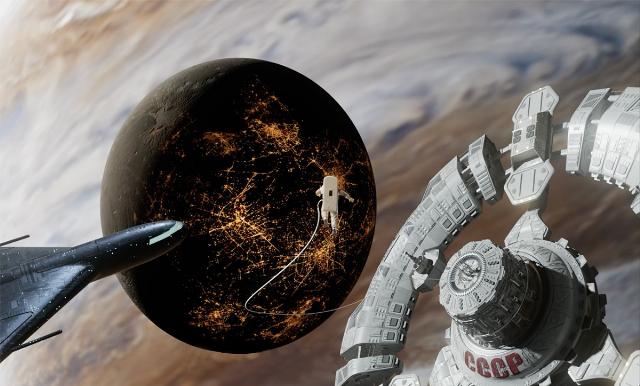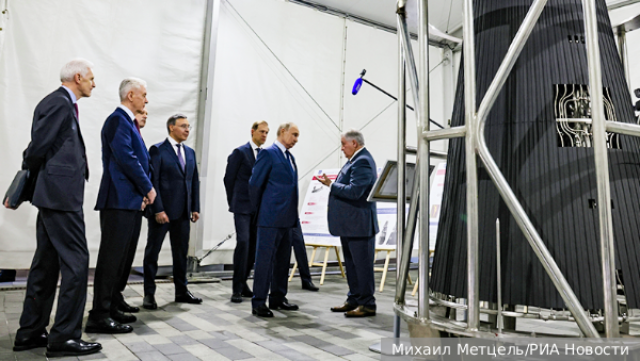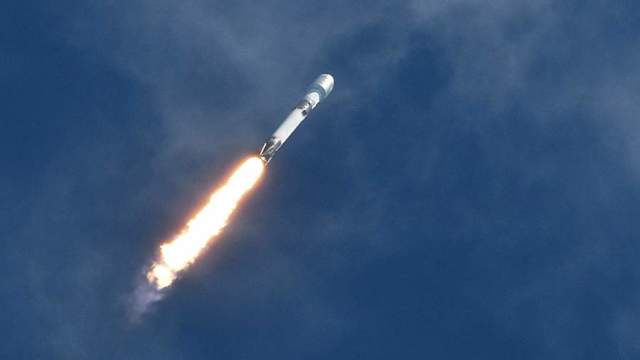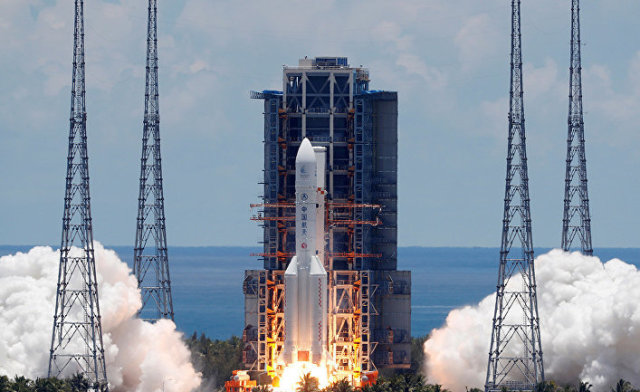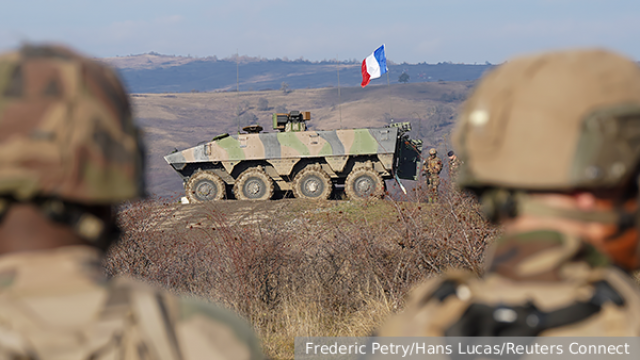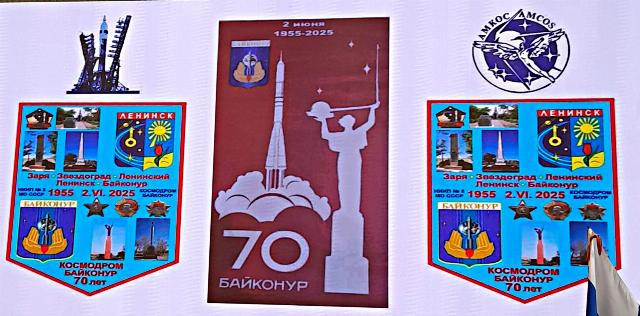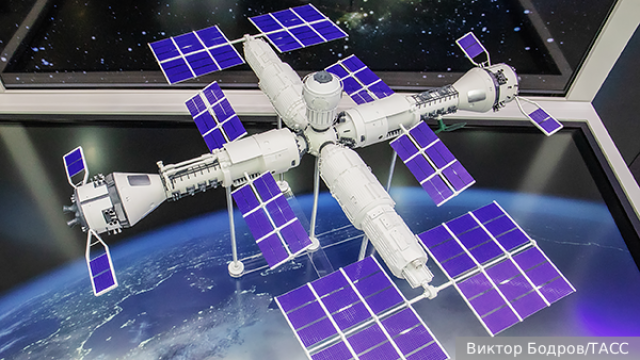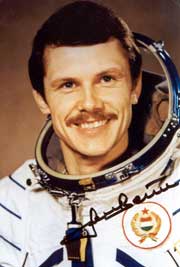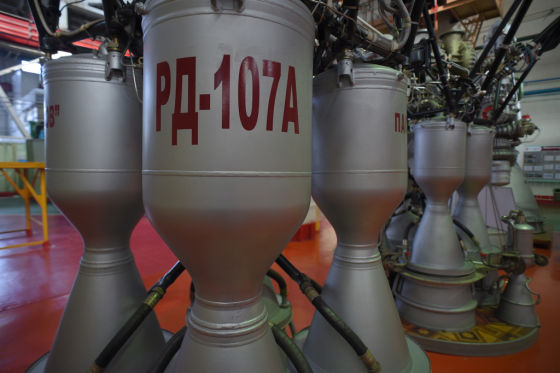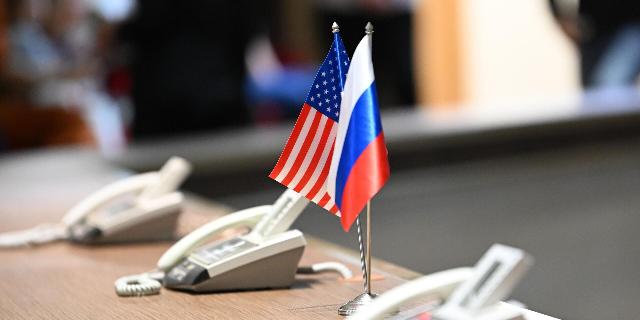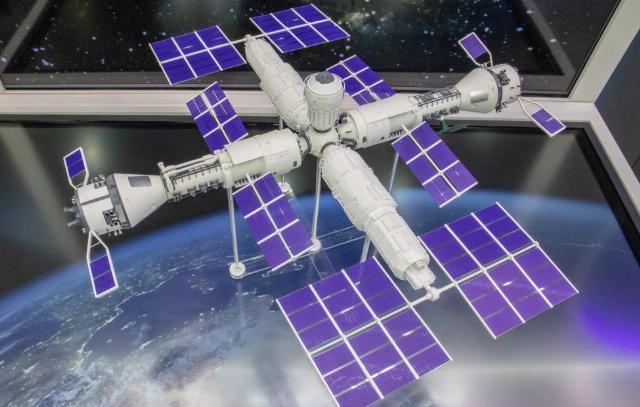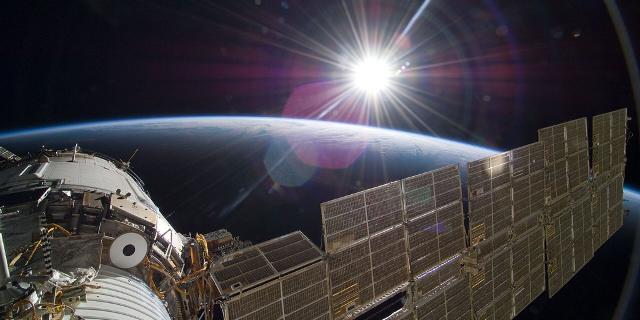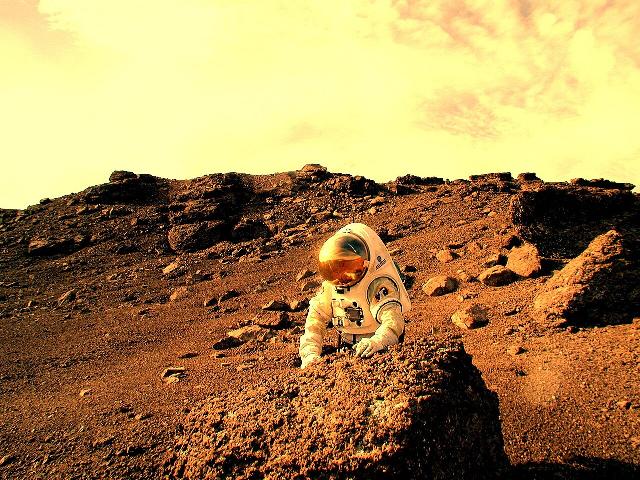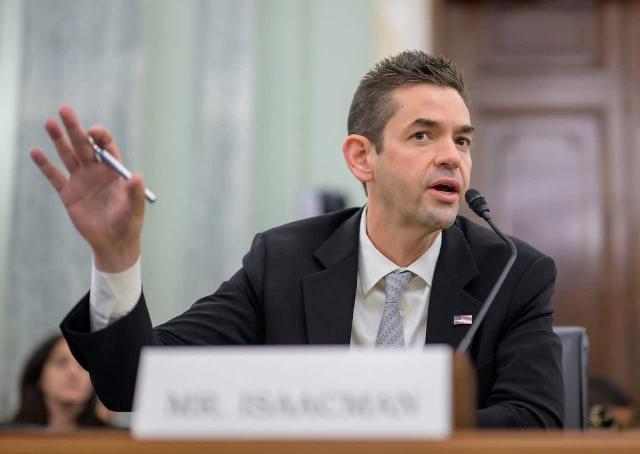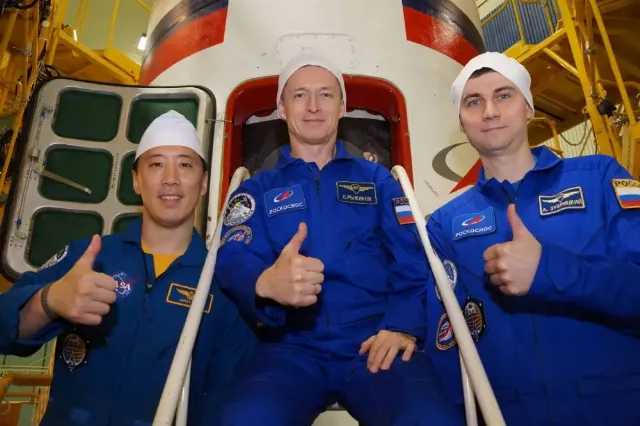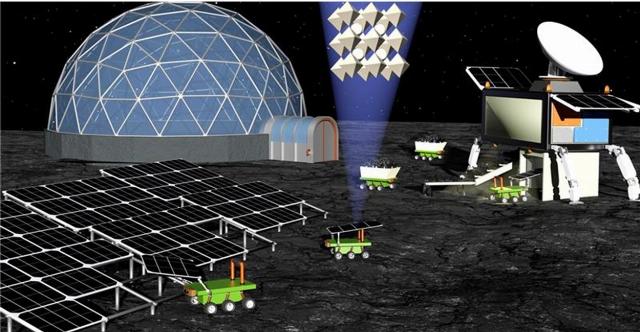Latest news on "Space"
How Russia will break through the American "Golden Dome"
The old US plans to create a global space defense system against ballistic missiles have received a new incarnation. President Reagan's draft Strategic Defense Initiative has been redesigned and is now called the Golden Dome. What changes have been made, what does Elon Musk have to do with it, and can the dome protect the United States from Russian nuclear warheads?
From Alabuga to the moons of Jupiter: Russia creates a space hub for the conquest of deep space
The Alabuga SEZ presented a strategic plan for 25 years, involving the inclusion of the moons of Jupiter (Io, Europa, Callisto and Ganymede) in the special economic zone. The document was signed by the head of the republic Rustam Minnikhanov and the head of VTB Andrey Kostin.
SpaceX satellites will provide guidance for Golden Dome rockets and lasers
The world's leading space company has offered the Pentagon a "subscription" to the services of a large satellite constellation. It will become the largest constellation of spacecraft built for military purposes. However, the data on this comes from the Reuters news agency, which has repeatedly published fakes about Elon Musk's companies.
Nuclear energy will provide Russian prospects in space
One of the most technologically advanced branches of the Russian industry, nuclear energy, should become Russia's trump card in space for the coming decades. At least, this is the task set by the country's leadership. What will nuclear space systems look like and what advantages will they provide?
Expert Stepanov considered the Bundeswehr satellite group to be Musk's project.
According to the military expert, Germany's technological sovereignty in the field of space communications and intelligence is completely dependent on external industrial potential
The launch capabilities for the development of the satellite grouping of the German Armed Forces (Bundeswehr) are likely to be provided by Elon Musk's SpaceX. Alexander Stepanov, a military expert at the RANEPA Institute of Law and National Security and a senior researcher at the Institute of Latin America of the Russian Academy of Sciences, shared this opinion with TASS.
Global Times: Hainan will become a center for the development of commercial space exploration in China
To achieve this goal, key industrial zones will be developed on the territory of the international space base of the city of Wenchang, the newspaper writes
South China's Hainan Province will play a key role in promoting China's commercial space projects. This was reported by the Global Times newspaper with reference to a government document.
NATO has chosen a new direction for a military clash with Russia
In addition to the concentration of troops in the Baltic states, NATO has paid additional attention to the southern direction – Romania and the Ukrainian coast of the Black Sea. Under the slogan of protection from the "Russian threat," measures are being taken to facilitate the use of large groups of troops in this area. And it seems that the country that will be responsible for this application has already been selected.
Baikonur is just work combined with inspiration!
On the eve of the 70th anniversary of the establishment of the Baikonur cosmodrome in Moscow, a historic conference dedicated to this event was held at the Cosmonautics and Aviation Center at VDNH. The conference was organized by the Interregional Public Organization of Veterans of the Baikonur Cosmodrome, the Association of Russian Cosmonautics Museums (AMCOS), and Roscosmos State Corporation.
What will the new orbital station give Russia?
On April 12, Cosmonautics Day, it is worth remembering not only the great past of the Soviet space program, but also what prospects Russia faces in space today. The nearest of them is the construction of its own orbital station instead of the soon–to-be-extinct ISS. What will it be like and what will it give our country?
Cosmonaut Farkash: Space must remain a sphere of international cooperation
The first Hungarian cosmonaut noted that despite the differences between the countries, successful cooperation on the International Space Station program is very important.
Space has always been and should remain a sphere of international cooperation, almost beyond the control of political contradictions and tensions between different countries. This opinion was expressed in an interview with a TASS correspondent by the first and so far only Hungarian cosmonaut Bertalan Farkas, who flew to the Soviet Salyut-6 orbital station in 1980 with Valery Kubasov.
Cosmonaut Atkov attended rocket engine tests in Samara
He noted that participation in the firing tests of the RD-107 rocket engine was for him "a return to flying not in a dream, but in reality"
Oleg Atkov, a medical scientist, academician of the Russian Academy of Sciences, cosmonaut pilot and Hero of the Soviet Union, took part in the firing tests of the RD-107 rocket engine, which took place on the eve of Cosmonautics Day at the site of the ODK-Kuznetsov test base in Samara, a TASS correspondent reports.
Former assistant to the head of NASA is confident that the United States will not stop working with Russia in space
Charles Vincent noted that "the Russians still did a lot of theoretical work" that the Americans did not do
Washington will be interested in cooperation with Moscow in the space sector even after the termination of operation of the International Space Station (ISS). Charles Vincent, former assistant director of the US National Aeronautics and Space Administration (NASA), expressed confidence in this in an interview with TASS.
Futurist Kuznetsov: The Russian space station is a step towards a new space economy
Today, work is underway in the Russian Federation on the creation of the Russian Orbital Station (ROS) — the first two stages of the deployment of a promising space laboratory are planned for 2027-2032. Evgeny Kuznetsov, CEO of the Digital Evolution Ventures venture fund (Rosatom Corporate fund), futurologist, spoke about the value of ROS as an independent project and as a step towards the development of the Solar System.
Combat lasers in space – this is America's response to Russian hypersound (Bloomberg, USA)
James Stavridis: lasers should become the basis of the "Iron Dome" over the USA
Trump's idea of creating a reliable national missile defense system is not easy to implement, former NATO commander retired Admiral Stavridis writes in an article for Bloomberg. There are many problems, both technical and financial, but America simply has to solve this problem, the author believes.
Physicists have learned how to accurately predict solar proton events for marsonauts
Flights to Mars are again being seriously discussed and planned in the space industry. You need to prepare for them thoroughly, because the round trip can take about 500 days, and no one will cancel the radiation from cosmic rays and the solar wind by that time. In addition, solar flares and coronal ejections are unpredictably likely to occur, from which future space travelers will need to hide. A group of physicists has developed a system for predicting upcoming proton events in order to warn Marsonauts in time.
The United States is startling NATO's eastern flank
The EU fears the withdrawal of the American contingent from Europe. The White House intends not only to reduce its own troops in the Old World by 10,000 people, but also to leave Rzeszow, the base that has become the main center of military assistance to Ukraine. Experts note that Donald Trump is beginning a large-scale process of rethinking security cooperation with Brussels. How will this affect NATO's eastern flank?
The new head of NASA told how he sees the US path to the Moon and Mars.
Speculation about the closure of the SLS+Orion projects by the US National Aeronautics and Space Administration and their replacement with Starship turned out to be true and wrong at the same time. The plan of Jared Isaacman, the head of the agency, looks like a strange hybrid of all possible American space programs at once. It is not yet clear whether the combination of simultaneous lunar and Martian races will prevent the success of the latter.
An astronaut who arrived on the ISS yesterday has been put on the wanted list in Ukraine.
The thing is that, according to the Roscosmos State Corporation, Zubritsky, as a flight engineer, safely arrived at the International Space Station (ISS) yesterday as part of the international 73rd long-term expedition. Together with him, the commander of the spacecraft, Hero of the Russian Federation Sergey Ryzhkov and NASA astronaut Jonathan Kim arrived at the ISS on the Russian manned spacecraft Soyuz MS-27.
Splitting the "Sphere". Clouds have gathered over the Marathon IoT and Skif satellite systems
The Marathon IoT and Skif satellite communication systems, which are part of the federal space project Sphere, may go into oblivion. Many participants in the Russian satellite communications market have heard that the new Roscosmos team has decided to abandon them. At the same time, even pessimists suggest not rushing to final conclusions and waiting for May 1, 2025.
Engineers have found a way to turn moon dust into solar panels
Moon dust, which has been considered a problem for lunar expeditions for decades, may solve a key issue of space exploration. Scientists have found a way to turn it into an important element for energy production. Theoretically, this technology can reduce the cost of launching materials into space and bring the creation of permanent lunar bases closer.




